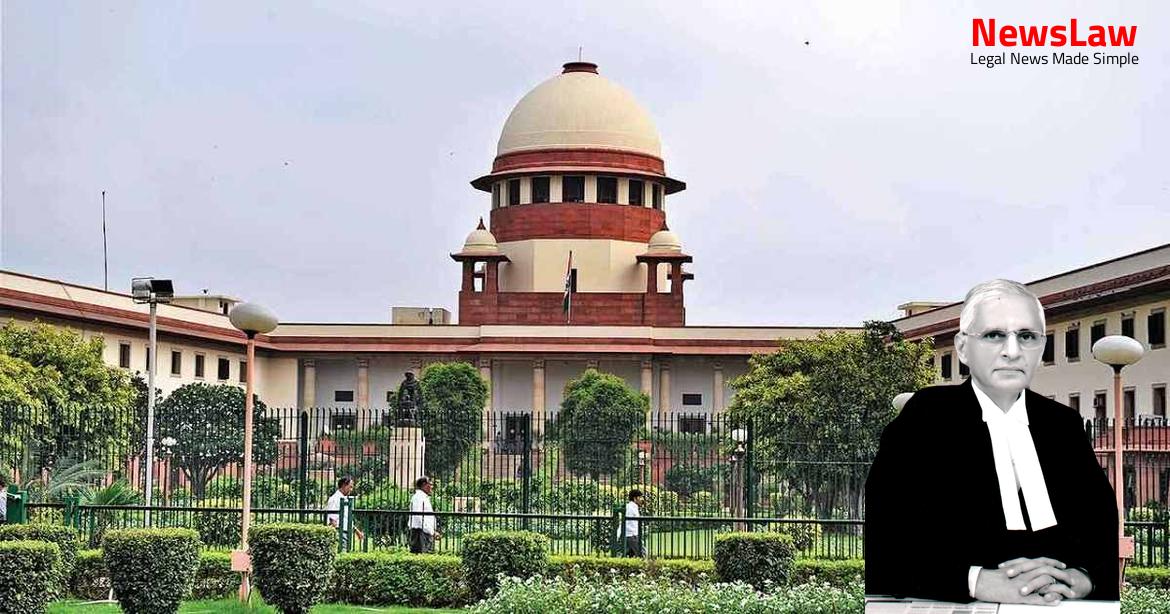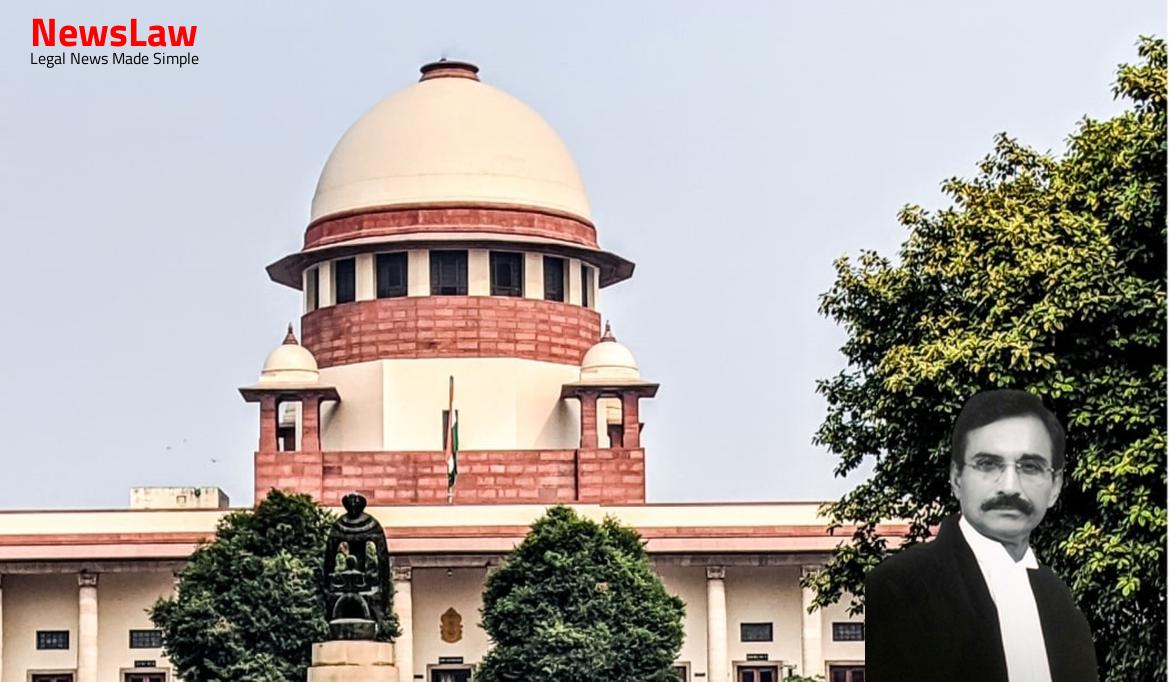In a recent legal case, the court grappled with the interpretation of rules regarding compassionate appointments. The analysis focused on whether the norms applicable on the date of the government employee’s death or on the date of consideration of the application should govern the eligibility criteria. This summary highlights the court’s legal analysis on the nuances of compassionate appointments and the importance of adhering to prescribed rules in such cases.
Facts
- The appointments of the beneficiaries were made dehors the provisions of the Karnataka Civil Services (Appointment on Compassionate Grounds) Rules, 1996 as amended in 1999.
- Before the amendment, minor dependents were allowed to apply until one year after attaining majority.
- The service of the beneficiaries was terminated after the discovery of the incorrect appointments.
- The appellants, who were the beneficiaries of compassionate appointments, approached the Karnataka Administrative Tribunal in Bangalore.
- The amendment to the proviso to Rule 5 stated that a minor dependent must apply within one year of the government servant’s death and must have attained the age of eighteen at the time of application.
- Appellant’s service was terminated without proper enquiry under Rule 11 of Karnataka Civil Services Rules.
- Tribunal set aside the termination order and directed reinstatement.
- Tribunal found appellants ineligible for appointment under the Rules and dismissed related applications.
- High Court dismissed resultant writ petitions.
Also Read: Insurance Claim Repudiation due to Fire Incident: Court’s Legal Analysis
Arguments
- Belated application filed by a dependent on attaining majority beyond one year from the date of the government employee’s death is not considered valid under the amended second proviso.
- Rule 9(3) of the Rules is a transitory provision granting extension of time for applying for compassionate appointment.
- The view in Canara Bank & Anr. vs. M. Mahesh Kumar (supra) needs to be reconciled with the contrary view of the coordinate bench in earlier judgments.
- Rule 5 is seen as procedural and not mandatory, leading to the argument that compassionate appointment for dependent children who attained majority more than one year after the employee’s death should not be invalidated.
- Compassionate appointment was offered without misrepresentation by the beneficiary.
- Retrospective application of amended provisions should not lead to cancellation of appointment.
- Appellants were ineligible to seek compassionate appointment under the amended provisions.
- Compassionate appointment is an exception to the general rules and must be in conformity with prescribed rules.
- Government has the power to rectify and recall illegal appointment orders.
Analysis
- The cases of the appellants were not covered by the transitory provision of Rule 9(3) introduced by a notification dated 28.5.2002.
- The dependents applied for compassionate appointment well beyond the stipulated period of one year from the date of the parent’s death and the applications should not have been entertained.
- The amended provisions introduced an outer limit of one year from the date of death of the government servant for making an application for compassionate appointment.
- The amended rules aimed to ensure that no application is filed beyond one year of the death of the government employee.
- Compassionate appointment is an exception to the general norms of equal opportunity for all aspirants as mandated by Articles 14 and 16 of the Constitution.
- Appointment on compassionate grounds is a concession, not a right, and aspirants must satisfy the criteria laid down in the Rules.
- No aspirant has a vested right to claim compassionate appointment, and the applicable norms are those in force when the application is considered.
- Employers have the right to modify schemes based on their policies.
- Compassionate appointments must be considered according to the prevailing scheme, not as per the scheme existing on the date of the employee’s death.
- Appointment to public posts must adhere to principles in accord with Articles 14 and 16 of the Constitution, with compassionate appointment being an exception to the general rule.
- Conflicting views on whether the norms applicable on the date of death or on the date of consideration of the application should apply led to the matter being referred to a larger Bench for resolution.
- A dependent of a government employee can demand consideration of their application in the absence of any vested right accruing on the death of the government employee.
- The dependent is not entitled to seek consideration according to the norms in place on the day of the government employee’s death.
- The norms applicable on the date of consideration of the application should be the basis for evaluating the claim for compassionate appointment.
Decision
- The appellants were found to be ineligible for compassionate appointment when their applications were considered.
- The unamended provisions of Rule 5 of the Rules were deemed not to apply to them.
- The Tribunal’s view was affirmed by the High Court of Karnataka.
Case Title: N.C. SANTHOSH Vs. THE STATE OF KARNATAKA (2020 INSC 273)
Case Number: C.A. No.-009280-009281 / 2014



